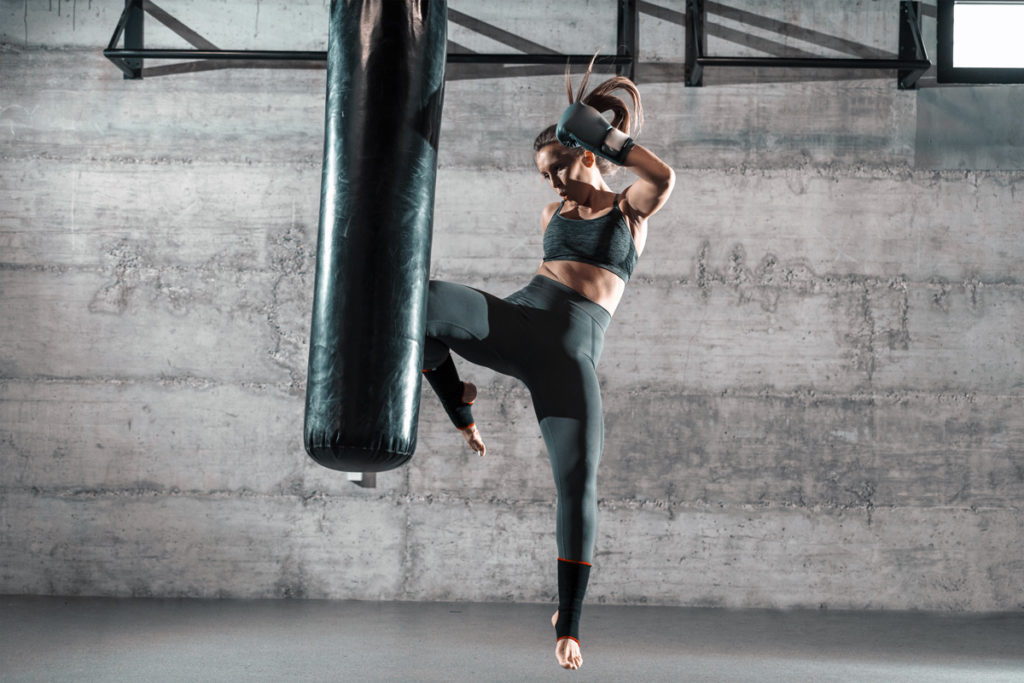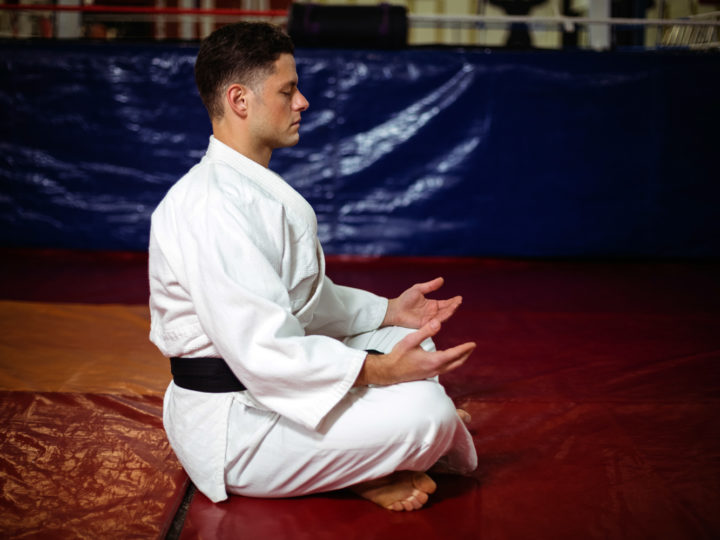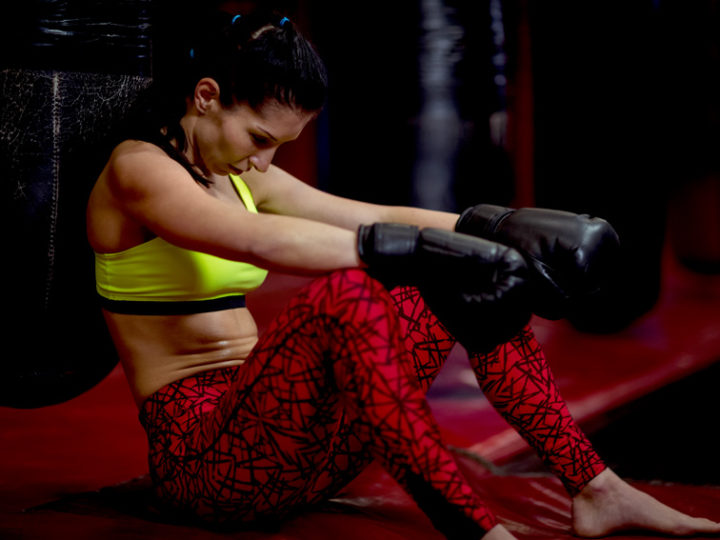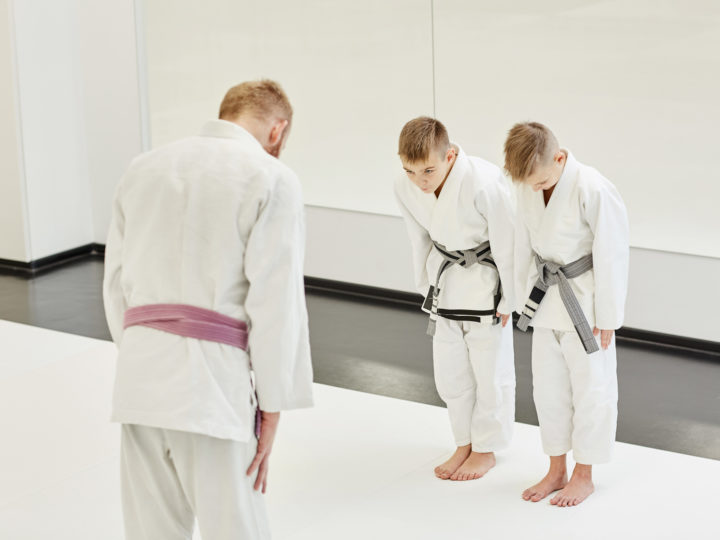Mixed Martial Arts (MMA) is a rapidly growing sport for both professional athletes and hobbyists alike. The combination of striking and grappling has developed a strong fan base through promotions like the UFC, and more and more people are signing up to their own local MMA gyms to learn how to fight for fun or self-defense.
You don’t need to spend a long time watching MMA to know that it’s dangerous. Broken bones, open wounds, and long-term brain damage are all potential consequences of training in combat sports, so it’s no wonder so many people avoid training in MMA (or any striking or grappling art) because of the risks. Despite the damage MMA can inflict upon practitioners, though, there are also many ways that training in mixed martial arts can improve your health as well.
Here are five of the biggest health benefits you can receive from training MMA:
1- Your cardio will improve.

Anyone who’s taken a class in boxing or Brazilian jiu-jitsu knows firsthand how exhausting it can be. While it may feel at first like your lungs are going to self-destruct, the more you come back to training, the easier it will be. Of course, it may not feel that way — as you become more fit, you’ll be able to push yourself harder and find new ways to challenge yourself. But one day, you’ll be able to look back and wonder how merely doing the warmup was enough to leave you winded.
Doing things like running, swimming or cycling is also a great way to improve your cardio without the risk of being punched in the face. For many people, though, these “traditional” forms of exercise are boring, and thus, not sustainable. MMA provides a break from the monotony, being as stimulating for the mind as it is for the body. Students come back to train not just because they want to get in shape, but because they enjoy what they’re learning. You’re more likely to reap the long-term health benefits of an exercise you enjoy doing instead of one that you start and stop repeatedly over time.
2- Your social circle will expand.
Social health is a huge component of overall health, but many adults struggle to form friendships outside of work. It’s easy to see why — as kids, we’re given plenty of opportunities to meet people our own age through different classes in school and extracurricular activities. As grown-ups, though, these opportunities are limited as our responsibilities increase. It’s no wonder that, according to a 2018 study from Cigna, only 53 percent of Americans report having “meaningful in-person social interactions” on a daily basis.
Although MMA does involve inflicting violence upon other people, the interactions that take place during training are conducive to forming new friendships and maintaining existing ones. In order to improve, students need to be trusting and trustworthy training partners. Despite being an “individual” activity, there’s a significant team component to martial arts, and all that time spent training together can lead to deep and meaningful friendships that can extend beyond your time together inside the gym.
3- You’ll be more likely to develop healthy habits.

As with many competitive sports, training MMA can lead you to improve your lifestyle outside the gym. Many unhealthy habits soon become unsustainable or counterproductive for martial arts students who want to maximize their potential or feel better while training. Late nights out drinking, for example, will leave you feeling tired and even sick when you try to train the next day, and you may even find that your diet preferences change when you start consciously relying on your food as fuel instead of just something to fill your belly.
Some of the ways MMA can positively impact your life outside the gym include:
- Better sleep. Nothing beats hitting the pillow after an exhausting day, and not many activities are as exhausting as MMA. If you struggle to fall asleep at night or find yourself waking up restless hours before your alarm goes off, training MMA might be just what you need to get a full, restful eight hours.
- Improved diet. If you’re a sucker for sugary and processed foods, training in mixed martial arts may be the push you need to clean up your diet and start eating healthier. You’ll soon start to feel how your body responds more positively to healthier meals, which can lead to permanent diet changes that may have been more of a struggle to make before you started training.
- Smoking cessation. If you’ve been trying to kick your smoking habit to the curb, start with learning to kick pads. Many people who start training martial arts soon discover that the effects of cigarette smoke don’t mix well with intense exercise, and when the “punishment” for fast fatigue is getting punched or submitted more, quitting cigarettes for good suddenly becomes more enticing.
While these lifestyle changes aren’t guaranteed to happen simply by training MMA, taking classes at your local gym can be the catalyst you need to get started in building better habits.
4- Your mental health may get a boost.

If you struggle with depression, anxiety, or other mental health issues, MMA might offer some much-needed support. In addition to the aforementioned social benefits of training MMA, there are other ways this sport can help give your brain a boost, such as by:
- Providing a consistent sense of accomplishment. Depression can make you feel worthless or unaccomplished, but the small (and large!) victories achieved in MMA classes can remind your brain that you’re making progress and accomplishing new things.
- Forcing your mind to focus on the task at hand. Those who struggle with attention or focus can benefit from the fast-paced, intense nature of striking and BJJ classes in MMA. There’s a sense of urgency in sparring sessions that can help train your brain to focus on what’s happening for just a little longer… especially when the consequence for letting your mind drift is being on the receiving end of a kick or submission.
- Offering a support system. While MMA is technically an individual sport, you’ll never face your challenges alone. The aforementioned social benefits of training mean that when training — or life outside the gym — gets hard, you’ll have a number of people you can turn to if you’re struggling. Instead of having to face your struggles alone, you’ll have multiple people who may understand exactly what you’re going through and could be willing to listen if you need a shoulder.
While getting hit in the head isn’t exactly great for your brain, MMA is surprisingly beneficial for many people who want to improve their mental health.
What are the risks of MMA?

Anyone who’s ever watched an MMA fight, whether at the local level or for promotions like Bellator or the UFC, can easily see the many ways in which this sport could also be damaging to your health. Any sport carries risks, and this is especially true for combat sports. Many MMA athletes, even those who don’t yet compete, suffer broken bones, sprained or torn ligaments, cuts, concussions, and other injuries. For students who want to become professional fighters, these are just expected occupational hazards, but for those who can’t afford to constantly risk serious injury, there are ways to get the health benefits of mixed martial arts without worrying so much about ending up in the hospital.
For example, if you want a lighter version of the combat experience, you can practice Brazilian jiu-jitsu, which purely involves grappling and doesn’t involve hitting or getting hit. Boxing classes may also be a good option if you don’t want to get taken to the ground and battered with tough MMA gloves.
If you still want the experience of combining striking and grappling, but at a hobbyist level, simply communicate this with your coach. A good instructor will help you tailor your experience to your needs and avoid pairing you up with sparring partners who are training to become active competitors. There are plenty of students out there who train MMA as a hobby, and chances are you’ll be able to find a few training partners at your gym who are trying to reach their full potential while still being understanding toward their teammates who have to wake up and go to a “traditional” job the next day.
Health In The Hurt Business
Make no mistake — the harder you train in MMA, the more likely you are to get injured. But alongside the risks are a number of physical and mental benefits that can greatly improve your overall health and quality of life. If you’re looking for a way to boost your cardio, push yourself to develop better habits outside of the gym, and improve your social and mental health, training MMA can be a great solution. Yes, you’ll probably get punched in the face a few more times than you would at a standard gym with machines and weights, but the ways this combat sport will improve your life are well worth it.










